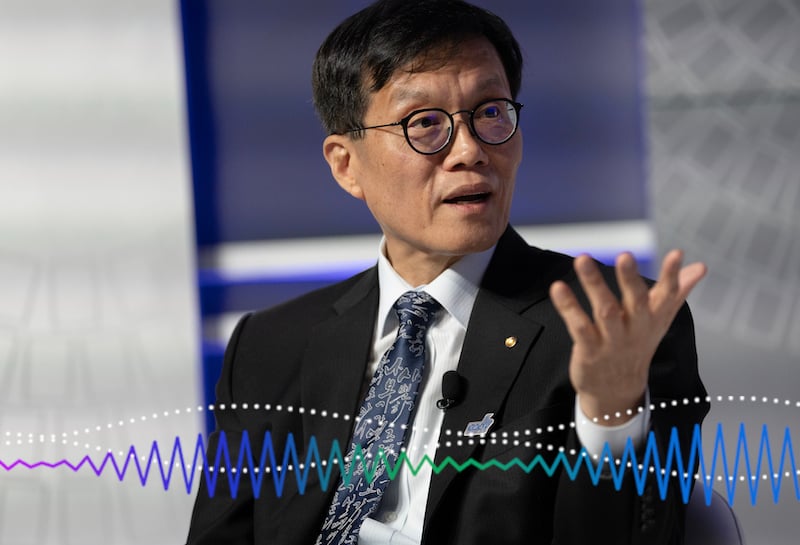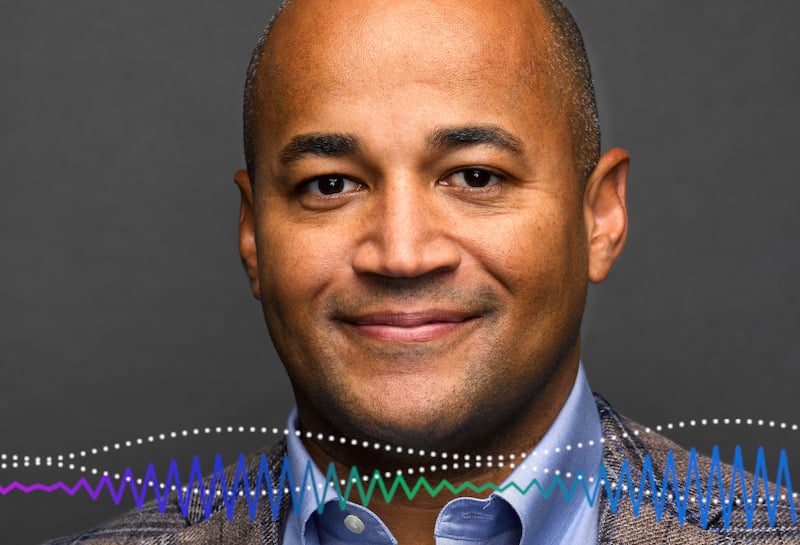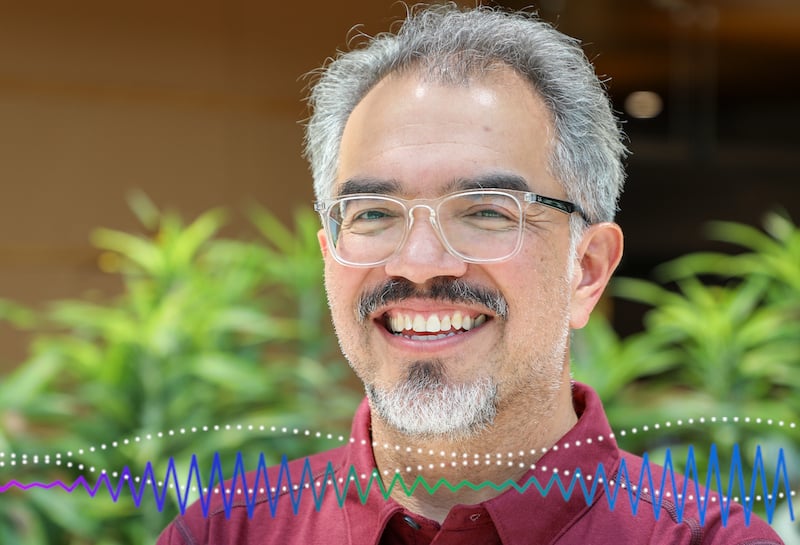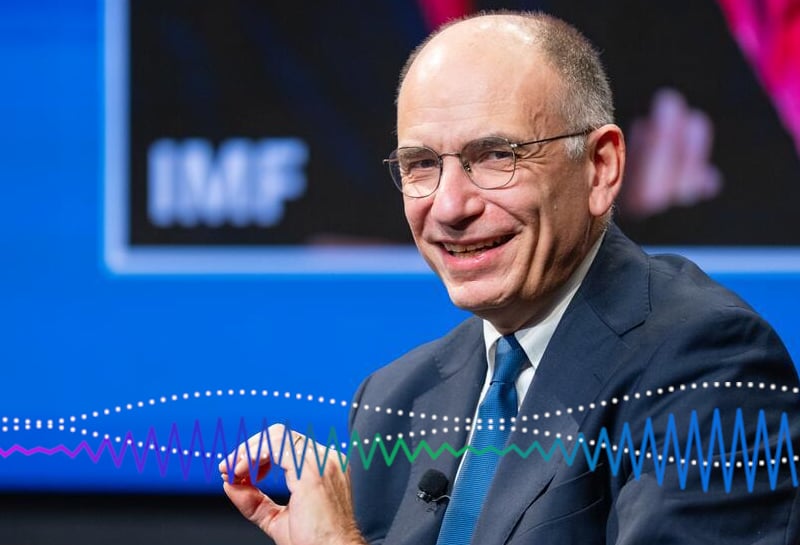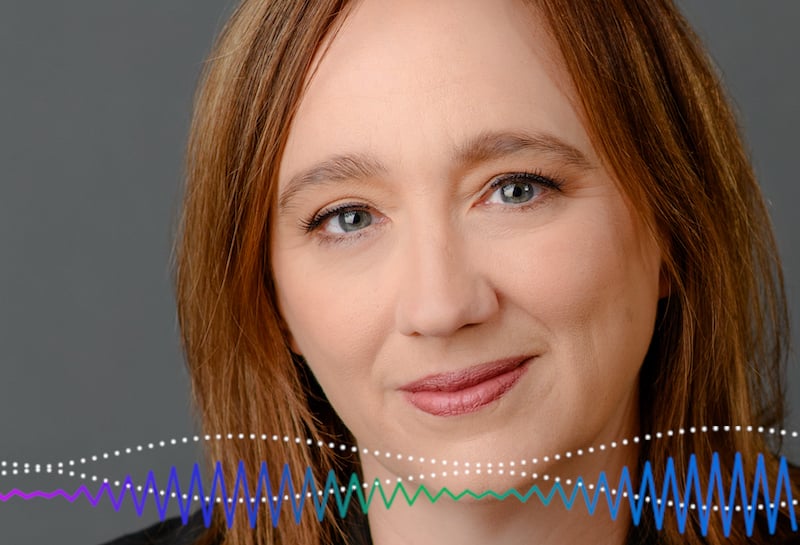
Nigeria Exits Recession and Looks Beyond Oil
Nigeria needs to increase non-oil revenues. (photo: iStock by Getty Images)
In This Episode
Nigeria’s economy is picking up according to the IMF’s latest economic review. Growth hit 0.8 percent in 2017 after contracting by 1.6 percent in 2016. The report attributes the increase—in part—to the recent recovery in oil prices. But as the country emerges from recession, the IMF’s Amine Mati says following through on planned reforms regardless of oil price swings and upcoming elections, is key to lifting Nigeria’s growth rates to where they should be. Mati heads the IMF team for Nigeria and oversaw this latest economic assessment.
Hello, I’m Bruce Edwards, and welcome to this podcast produced by the International Monetary Fund. In this program: Nigeria’s exit from recession amidst some potential distractions.
MR. MATI [soundbite]: I think it’s important this economic agenda remains urgent whether there are elections or not or whether oil prices move up or down.
MR. EDWARDS: Nigeria’s economy is picking up according to the IMF’s latest economic review. The report shows growth hit 0.8 percent in 2017 and attributes the increase, in part, to the recent recovery in oil prices. But as the country emerges from recession, the IMF’s Amine Mati says following through on planned reforms is key to lifting Nigeria’s growth rates to where they should be. Mati heads the IMF team for Nigeria and oversaw the production of this latest economic assessment.
So, Nigeria’s economy is showing signs of bouncing back, but it looks like it has a lot to do with higher oil prices now. Is oil still the only answer to Nigeria’s economy?
MR. MATI: There is no doubt that oil is an important component of Nigeria’s economy. [It is] 90 percent of export receipts, 60 percent of revenue receipts, and 10 percent of its economy. The recent economic performance was not just supported by oil but also by some new measures taken by the authorities, including in the foreign exchange market, which helped provide greater foreign exchange availability and helped rebuild and provide some confidence in the economy. Is oil the solution? I would say the authorities have recognized—and we support—that diversification is the way to go. Oil is very volatile, and this is why they have diversification as one of the key priorities in the economic recovery and growth plan that they have designed, and which we support. They have a lot of the right policies to get there, whether it is non-oil revenue mobilization; exchange rate unification; improving doing business; and improving structural reforms to make sure that the private sector is the main engine of growth.
MR. EDWARDS: So, Nigeria’s population is growing incredibly fast. What is the employment situation like today and will they be able to provide enough jobs for everyone, given this expanding labor force?
MR. MATI: Nigeria will become the third largest country in the world by 2050, if current trends continue. That’s going to represent quite a challenge. Today, after last year's recession, unemployment rate is 18.8 percent; it used to be 14 percent last year. Which means that when there’s a population growth of 3 percent, you have a negative per capita growth. Therefore, you need much higher growth, hence the importance of implementing the economic recovery and growth plan and those policies to try to boost growth way above the 3 percent rate that would be necessary to just keep per capita GDP constant. We need to see growth rates that we have seen in the past of 6 or 7 percent.
MR. EDWARDS: So, give me an example of something that you might have recommended that they do. Is there a sector in Nigeria that you can look toward for generating the level of growth that you're looking for?
MR. MATI: We have recommended, and we’ve been consistent throughout, is a coherent package of policy measures. It’s important to get the macro right; inflation contained; exchange rate in line with fundamentals; remove the distortions to try to get the investor confidence back, and non-oil revenue mobilization should be increased—the authorities want to increase it from 5 to 15 percent. We think that is the right way to go to reduce the vulnerabilities and provide the fiscal space necessary. Last but not least, is work on structural reforms. These would include power sector infrastructure; addressing corruption; and improving doing business. They have made significant strides in that area where they most recently improved by 24 places.
MR. EDWARDS: So, the report shows that lower oil prices and insecurity are risks to the economy. To what extent is terrorism disrupting Nigeria’s economy?
MR. MATI: Well we clearly saw that in 2016 when you had oil sabotage in the Niger Delta region. Today, we’re at oil production of 2 to 2.1 million barrels a day. In some months, particularly earlier in 2016, we saw it going as far down as 1 million barrels a day. That took a terrible toll on the economy on both production and on the foreign exchange receipts at a time when oil prices were collapsing. At the same time, we also have higher security needs to deal with the problems in the northeast. With Boko Haram, there has been progress that was made in trying to combat terrorism there, but you still have some attacks. More recently, we saw 110 girls again kidnapped. That is putting pressure in that region, putting pressure on the spending, and affecting the number of displaced persons. All of these remain concerns that Nigeria will have to deal with and is continuing to deal with.
MR. EDWARDS: So, you mentioned earlier, issues like electricity and things like that which are important to the economy. The report refers to this massive infrastructure gap that's discouraging private investment. Why has there been so little public investment in infrastructure over the years?
MR. MATI: You’re right. In Nigeria, the shortfall relative to emerging markets in terms of infrastructure is large. The authorities recognize it to be about 35 percent of GDP—that's a big number. And why has there been low spending on public infrastructure? When we talk about infrastructure, it is both electricity and roads, and educational and health infrastructures. That was because in the past in the budget, infrastructure was less than 15 percent of total spending. There was consistent under execution. In terms of the spending, if the efficiency of the spending on capital infrastructure were to improve, you would see growth going up by 0.3 to 1 percentage points, depending on the level of efficiency. When I talk about efficiency, [ I mean:] what is it that needs to be improved?
So, in addition to increasing capital spending, this is what the authorities are doing because they're putting 30 percent of their budgeted spending on capital. That is now the new rule since the new government has come in. And then to improve the efficiency, some of the areas they need to work on include project appraisal and project evaluation—it is important to have an efficient procurement process. And linked to all of this, it is important that you do not have projects that stop every time you have a new budget. So, it is important to also have a multiyear budgeting approach to try to ensure that projects continue and are able to deliver as opposed to the stop-and-go approach.
MR. EDWARDS: So, continuity is an important factor.
MR. MATI: Absolutely.
MR. EDWARDS: So, you also mentioned briefly earlier, the issue of corruption as being another thing that is also discouraging private investment to a certain extent. What has the government done to address corruption?
MR. MATI: I think the government has done many things. The first one is that the government has recognized that corruption is a key challenge for Nigeria and has put it on the table. Addressing it is part of the economic recovery and road plan, once again. It is not just in terms of policies, it is also recognizing that it’s one of the few countries that has done its own study to show how important corruption is, [as well as] bribery.
So, it is not just a reliance on third party indicators that show how corruption is important, it is also Nigeria's own work. What have they done? They've adopted an anti-corruption strategy. They have tried to digitalize public officials’ asset declarations to put them out there. They have introduced a treasury single account which is a good way of knowing exactly what is in the government’s accounts so you don’t have that dispersed through old commercial banking systems. They have worked on tax administration to try to identify the leakages; done some cross-data matching to identify who is not paying, and where the funds are coming from; and they have criminalized some acts of corruption.
So, all of those are actions that have been taken. There is more that needs to be done, including more convictions. I think there are a lot of cases that are coming, and it will be important to streamline the legal institutional framework mostly, for example, in the investigation, prosecution, and asset recovery. An area that is also of concern to the authorities, which we support, is to increase the transparency in the oil sector.
MR. EDWARDS: So, this economic review makes several recommendations. What would you like to see happen first? I mean, these economic reviews happen every year. What would you like to have seen happen by the time you start next year?
MR. MATI: That’s a tough question. There are many things we would like to see happen. Because the important thing to remember is that it’s important to have a coherent policy package. It is not just a panacea—a lot of people will talk about exchange rate unification as a solution or structural reforms. I think it is really trying to put all of the reforms that I talked about—non-oil revenue mobilization, exchange rate unification, a tight monetary policy, and all these structural reforms that address all the infrastructure concerns. I think all of that package is necessary to really get growth up.
But, if I had to focus on one in the short term or one where I think we can get a lot of bang for the buck, I would focus on non-oil revenue mobilization. Which is where the authorities want to go from 5 to 15 percent increasing the tax. Taxable revenue ratio is one of the lowest in Nigeria. The interest payment to federal government revenue is one of the highest which leaves it vulnerable, with not enough resources to pay for discretionary spending. And therefore, what is important to create the fiscal space for the necessary social and capital spending is to increase revenue. There is really not much other choice and you can do that several ways. You can go by strengthening tax administration, and strengthening tax administration is really trying to improve compliance.
And then you'll have to also look at the tax policy side. Trying to broaden the base by removing the exemptions would be one. Excises are very low in Nigeria compared to ECOWAS countries or peers, and also broadening the VAT. The VAT rate in Nigeria is only 5 percent. Compliance rate on VAT is only 25 percent. So, there is also a lot of room there to try to improve non-oil revenue in a sustainable manner over the next five years.
MR. EDWARDS: Do you worry that the upcoming presidential election scheduled for early in 2019 might detract from its economic agenda?
MR. MATI: I think it is important that this economic agenda remains urgent whether there are elections or not or whether oil prices move up or down. Because the dividends would only come later and therefore the implementation would be important to make sure they get the dividends that they need.
MR. EDWARDS: Amine Mati heads the International Monetary Fund’s team for Nigeria and oversaw the production of its latest economic review. You can read the full report at imf.org. If you like this podcast, you can subscribe on iTunes or on your favorite podcast app. Just search for “IMF podcasts”. And, you can now follow us on Twitter: @imf_podcast.
Join Us on Every Major Platform
Latest Podcasts
BEHIND THE MIC

Bruce Edwards
International Monetary Fund
Bruce Edwards produces the IMF podcast program. He's an award-winning audio producer and journalist who's covered armed conflicts, social unrest, and natural disasters from all corners of the world. He believes economists have an important role in solving the world's problems and aspires to showcase their research in every IMF podcast.

Rhoda Metcalfe
RHODA METCALFE is an independent journalist and audio producer.





